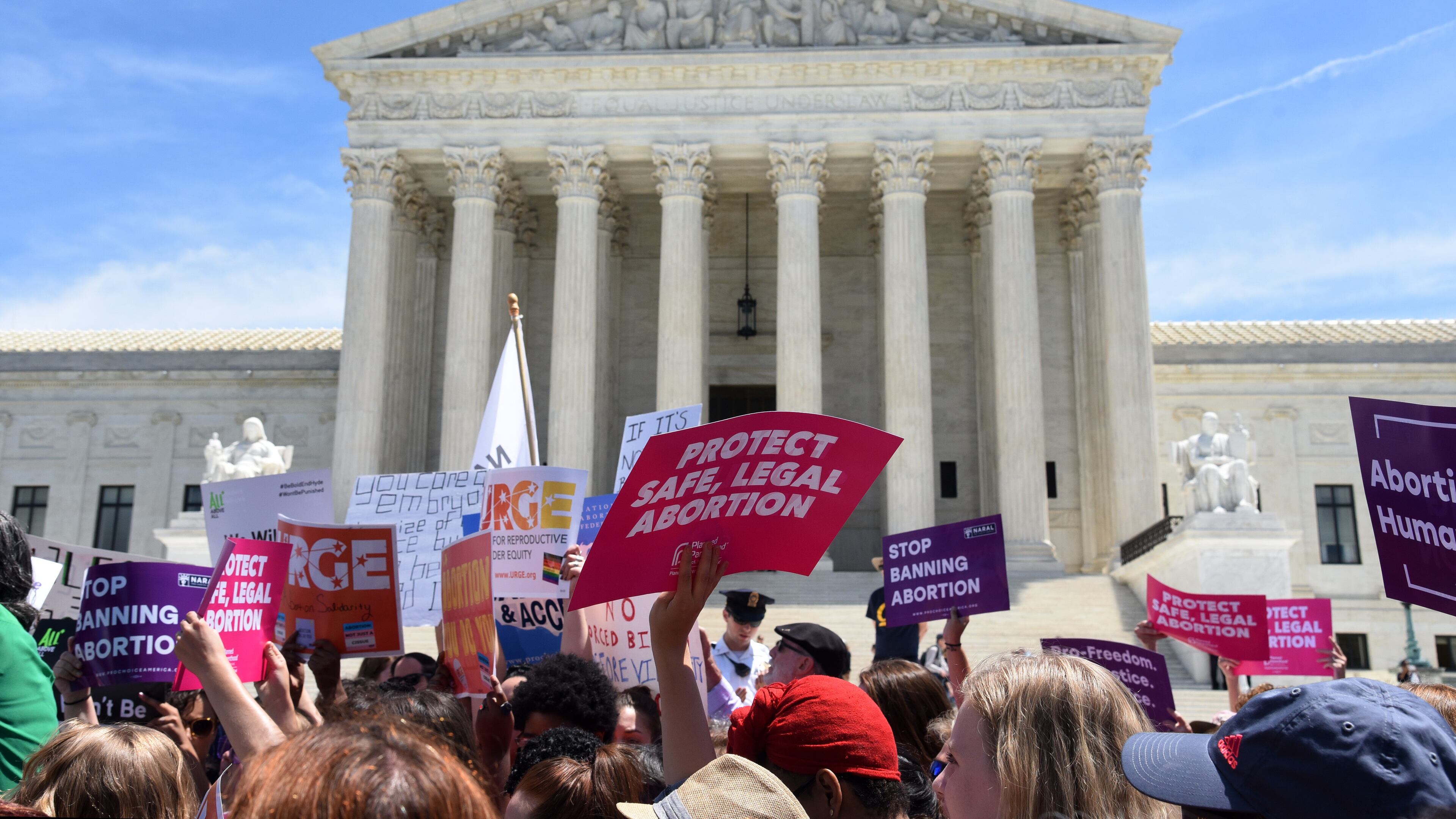Roe v. Wade ended two years ago, but it’s a factor in 2024’s elections

Monday will mark two years since the U.S. Supreme Court overturned Roe v. Wade, sending decisions about abortion back to the states.
Melita Easters, founding chair and executive director of Georgia Win List, a political action committee that backs Democratic women seeking office who support abortion rights, joined “Politically Georgia” on Friday to talk about the landscape of reproductive rights in the state.
Easters says the fall of Roe is clearly a factor this year in Georgia elections.
“We had a record-setting number of women candidates who qualified for office. We’ll have a record-setting number of women on the ballot in November,” Easters said.
Georgia law bans most abortions once fetal cardiac activity is detected, or about six weeks into a pregnancy and before many people know they are pregnant.
“And so it is a more popular reason for running to say that you’re going to protect reproductive freedom,” she said. “Women understand that it’s not just about an elective abortion.”
Since the fall of Roe, there have been questions about overall reproductive issues, including rights to contraception and in vitro fertilization.
“One state will throw something against the wall to see if it sticks and goes through the court process so that they can introduce it in other states,” Easters said.
“Alabama’s the IVF ban state. You have other states where they’re talking about bans on abortion medication like mifepristone. There are states where they’re talking about contraception bans. There are states where they’re talking about no sex education whatsoever in the public schools,” she added.
Just last week, Georgia House Speaker Jon Burns vowed to protect the use of IVF. The announcement came after the U.S. Supreme Court ruled unanimously to continue to allow the use of mifepristone, a medication that induces abortion.
“Georgia has not been as much a throw-it-at-the-wall state,” Easters said, “because we’re so close to being a battleground state.”
All eyes will be on Georgia when former President Donald Trump and President Joe Biden debate next week in Atlanta on CNN. Both men will likely talk about reproductive rights.
Before a visit to Georgia in April, Trump released a video statement saying each state should decide its abortion stance through legislation.
Biden quickly blasted Trump on that stance, saying the former president fostered “chaos” around abortion after appointing three conservative U.S. Supreme Court justices who helped overturn Roe.
Easters ultimately hopes that Biden stands on his record during the debate.
“I believe Biden will reiterate the things that his administration has done to promote reproductive freedom,” she said. “That they will do everything in their power to restore reproductive options to the level enjoyed before the overturn of Roe.”
Monday on “Politically Georgia”: Monday marks two years since the fall of Roe v. Wade. We’ll talk to leaders on both sides of the abortion issue about where Georgia stands.



